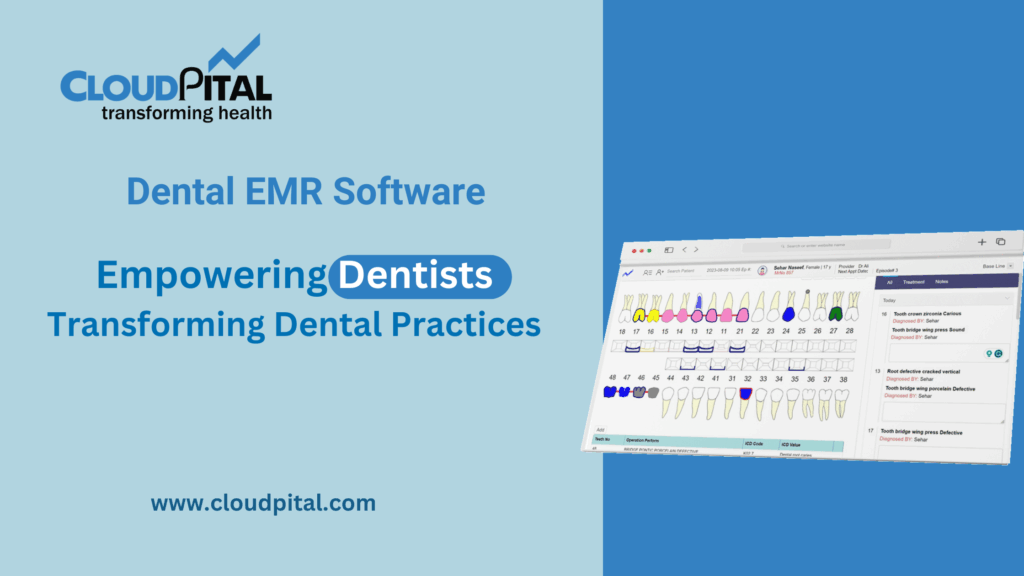Cloudpital # 1 is one of the top RCM has become a critical component for ensuring the financial viability of healthcare providers. RCM encompasses the entire financial process of managing claims, processing payments, and generating revenue, from the initial patient encounter to the final payment of a balance. The complexities of RCM have long been a challenge for healthcare providers, often leading to inefficiencies, delayed payments, and increased operational costs. However, with the advent of automation, RCM is undergoing a significant transformation, offering opportunities to streamline operations, reduce errors, and enhance overall financial performance.
Click to Start Whatsapp Chatbot with Sales
Mobile: +966502737333
Email: sales@cloudpital.com
Cloudpital # 1 RCM

Understanding the Revenue Cycle
Before diving into how automation is transforming RCM it is essential to understand the revenue cycle itself. The revenue cycle begins with the scheduling of a patient appointment and continues through patient registration, insurance verification, coding, claim submission, payment posting, and finally, collections. Each of these steps involves various administrative tasks that are prone to human error and inefficiency.
Traditionally, RCM has been a labor-intensive process, requiring significant manual input at each stage. This manual processing often leads to delays, errors in coding or billing, and denied claims, all of which can have a negative impact on a healthcare provider’s revenue. As healthcare organizations strive to improve their financial performance and patient satisfaction, automation has emerged as a powerful tool to address these challenges.
The Role of Automation in Revenue Cycle Management
Automation in RCM refers to the use of advanced technologies such as artificial intelligence (AI), machine learning (ML), robotic process automation (RPA), and data analytics to streamline and optimize various aspects of the revenue cycle. These technologies can automate repetitive tasks, enhance accuracy, and provide actionable insights, ultimately improving the efficiency and effectiveness of RCM.
Patient Registration and Scheduling
One of the first touchpoints in the revenue cycle is patient registration and scheduling. Automation tools can streamline this process by enabling online scheduling, automatic insurance verification, and electronic patient intake forms. These tools reduce the need for manual data entry, minimize errors, and ensure that accurate patient information is captured from the outset. Automated systems can also send appointment reminders to patients, reducing no-shows and optimizing scheduling efficiency.
Insurance Verification and Eligibility Checks
Insurance verification is a critical step in the RCM, as it determines whether a patient’s insurance coverage is active and what services are covered. Manual verification is time-consuming and prone to errors, leading to claim denials and delays in payment. Automation can significantly speed up this process by instantly verifying insurance eligibility through electronic data interchange (EDI) systems. Automated tools can check for coverage, co-pays, and deductibles in real-time, reducing the likelihood of denied claims and improving cash flow.
Coding and Billing
Accurate coding and billing are essential for ensuring that healthcare providers are reimbursed appropriately for the services they provide. However, manual coding is not only time-consuming but also prone to errors, which can lead to claim rejections or underpayments. Automation in coding and billing involves the use of AI-driven tools that can analyze clinical documentation and assign the appropriate codes for billing. These tools can also identify potential coding errors before claims are submitted, reducing the risk of denials and ensuring that claims are processed correctly the first time.

Claim Submission and Tracking
The process of submitting claims to insurance companies and tracking their status is another area where automation can have a significant impact. Automated Medical Solutions in Saudi Arabia systems can generate and submit claims electronically, reducing the time it takes to process them. These systems can also track the status of each claim in real-time, providing healthcare providers with visibility into the claims process. By automating claim submission and tracking, healthcare organizations can reduce delays, improve cash flow, and ensure that claims are paid promptly.
Payment Posting and Reconciliation
Once payments are received from insurance companies or patients, they need to be posted to the correct accounts and reconciled with the corresponding charges. Manual payment posting is labor-intensive and can lead to errors in account reconciliation. Automation tools can streamline this process by automatically posting payments to the correct accounts and reconciling them with the charges. This reduces the likelihood of discrepancies, speeds up the payment process, and ensures that healthcare providers have accurate financial records.
Denial Management and Appeals
Claim denials are a common challenge in RCM, and managing them effectively is crucial for maintaining revenue. Manual denial management is a time-consuming process that involves identifying the reason for the denial, correcting errors, and resubmitting the claim. Automation can simplify this process by automatically flagging denied claims, identifying the reasons for denial, and generating appeals. Automated systems can also analyze denial patterns to identify common issues and implement corrective actions, reducing the overall denial rate and improving revenue recovery.
Patient Billing and Collections
Patient billing and collections are often the final steps in the revenue cycle, and they can be particularly challenging. Patients may have questions about their bills, or they may need to set up payment plans. Automation can enhance patient billing and collections by providing patients with easy-to-understand electronic statements, offering online payment options, and sending automated payment reminders. Automated systems can also track outstanding balances and initiate collection efforts when necessary, improving the likelihood of payment and reducing the time it takes to collect payments.
Benefits of Automation in Revenue Cycle Management
The integration of automation into RCM offers numerous benefits for healthcare providers. These include:
Increased Efficiency
Automation eliminates the need for manual data entry and reduces the time it takes to complete various RCM tasks. This increased efficiency allows healthcare providers to process more claims in less time, improving cash flow and reducing the time it takes to receive payments.
Enhanced Accuracy
Automated systems are less prone to errors than manual processes, leading to more accurate claims, fewer denials, and higher reimbursement rates. By reducing errors, healthcare providers can avoid costly rework and ensure that claims are processed correctly the first time.
Improved Cash Flow
Automation speeds up the revenue cycle, reducing the time it takes to receive payments from insurance companies and patients. This improved cash flow is essential for maintaining the financial health of healthcare organizations, allowing them to invest in patient care and other critical areas.
Better Compliance
Healthcare providers must comply with a wide range of regulations, including those related to billing and coding. Automated RCM systems can help ensure compliance by enforcing best practices, identifying potential issues, and providing audit trails for regulatory purposes.
Enhanced Patient Experience
By streamlining the billing and payment process, automation can enhance the patient experience. Patients benefit from clearer bills, more convenient payment options, and faster resolution of billing issues, leading to higher patient satisfaction and loyalty.
Actionable Insights
Automation generates a wealth of data that can be used to gain insights into the revenue cycle. Healthcare providers can analyze this data to identify trends, optimize processes, and make informed decisions about how to improve financial performance.
Challenges of Implementing Automation in RCM
While automation offers significant benefits, implementing it in RCM is not without challenges. Healthcare providers may face obstacles such as:
Initial Costs
The initial cost of implementing automated RCM systems can be high, including the cost of software, hardware, and training. However, these costs are often offset by the long-term benefits of automation.
Integration with Existing Systems
Healthcare organizations may have existing systems that need to be integrated with new automated RCM tools. Ensuring seamless integration can be challenging, especially if legacy systems are involved.
Staff Training
Implementing automation requires training staff to use new systems effectively. Healthcare providers must invest in training programs to ensure that employees can take full advantage of automation’s benefits.
Data Security
Automated systems handle sensitive patient and financial data, making data security a top priority. Healthcare providers must ensure that their automated EMR Software in Saudi Arabia systems comply with data protection regulations and implement robust security measures to protect patient information.
The Future of Automation in Revenue Cycle Management
The future of RCM is undoubtedly tied to the continued advancement of automation technologies. As AI, machine learning, and data analytics evolve, they will enable even greater efficiencies and more sophisticated capabilities in RCM. For healthcare providers, staying ahead of these trends will be crucial for maintaining financial health and delivering high-quality care.
In conclusion, automation is transforming revenue cycle management by streamlining processes, reducing errors, and improving financial performance. While challenges exist, the benefits of automation far outweigh the obstacles, making it a critical component of modern healthcare operations. As automation technologies continue to advance, they will play an increasingly important role in helping healthcare providers navigate the complexities of RCM and achieve long-term financial success.
Click to Start Whatsapp Chatbot with Sales
Mobile: +966502737333
Email: sales@cloudpital.com
How Automation is Transforming RCM similar software solutions prices were updated on 2025-07-05T17:35:19+00:00 in Saudi Arabia in Mecca, Medina, Riyadh, Khamis Mushait, Yanbu, Jeddah, Dammam, Unaizah, Uqair, Ha’il, Ta if, Al Bahah, Dhahran, King Abdullah Economic City, Najran, Diriyah, Qatif, Khafji, Jubail, Abqaiq, List of Cities and Towns in Saudi Arabia, Ras Tanura, Turubah, Jazan Economic City, Knowledge Economic City, Medina, Khobar, Abha, Tabuk, Saudi Arabia, similar software solutions prices were updated on 2025-07-05T17:35:19+00:00 We also provide in Saudi Arabia services solutions company in Hafar Al-Batin, Udhailiyah, Al-Awamiyah, Hofuf, Hautat Sudair, Buraidah, Tayma, Duba, ‘uyayna, Saihat, Al-Kharj, Al-ula, Jizan, Rumailah, Ar Rass, Arar, Shaybah, Al Majma’ah, Rabigh, Dhurma, Haradh, List of Saudi Cities by Gdp Per Capita, Badr, Sudair Industrial City, Baljurashi, Shaqraa, Al-Khutt, Habala, Ad Dawadimi, Dawadmi, Layla, similar software solutions prices were updated on 2025-07-05T17:35:19+00:00 Price is SAR 100 and this was updated on updated on 2025-07-05T17:35:19+00:00 similar How Automation is Transforming RCM software solutions prices were updated on 2025-07-05T17:35:19+00:00 in Saudi Arabia in Haql, Afif, Al-Abwa, Farasan, Al-Jaroudiya, Thadig, Al-Thuqbah, Al Wajh, Almardmah, Al-Zilfi, Muzahmiyya, Prince Abdul Aziz Bin Mousaed Economic City, Tharmada’a, Skaka, Um Al-Sahek, Sharurah, Tanomah, Bisha, Dahaban, Al Qunfudhah, Qurayyat, Saudi Arabia, Ha’ir, as Sulayyil, Al Lith, Turaif, Al-Gway’iyyah, Samtah, Wadi Ad-Dawasir, Az Zaimah, Safwa City, Jalajil, Harmah, Mastoorah, Hotat Bani Tamim, Jabal Umm Al Ru’us, Rafha, Qaisumah, Al-Ghat, Hajrah, Al-Hareeq. Excerpt: Jeddah (also spelled Jiddah, Jidda, or Jedda; Arabic: Jidda) is a Saudi Arabian city located on the coast of the Red Sea and is the major urban center of western Saudi Arabia similar software solutions prices were updated on 2025-07-05T17:35:19+00:00 Price is SAR 100 and this was updated on updated on 2025-07-05T17:35:19+00:00
3-9-2024



